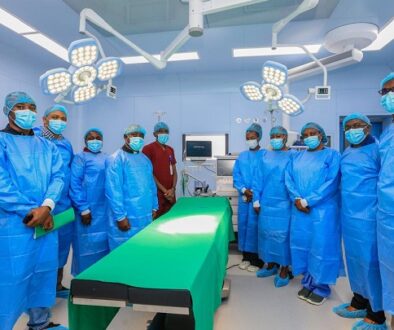All children to get Hepatitis B vaccine at birth

A child being immunized against polio.
KAMPALA – All newly born babies countrywide will soon be subjected to yet another vaccine, after the Ministry of Health announced plans to roll out the hepatitis B jab at all health facilities offering immunization services.
The introduction of this new vaccine means newborn babies will now receive three drugs, including two existing vaccines against polio and tuberculosis. Bahatungire says the new development is intended to cut down on the high rates of mother-to-child transmission of the disease.
Estimates from the 2019 Uganda Population-based HIV Impact Assessment (UPHIA), which is the most recent survey to collect data on hepatitis B, show that the disease is prevalent among 4.1 percent of the population, with the majority being women, and yet testing rates for it remain low, below 60 percent.
Experts predict that many more people could be living with the disease that can deteriorate into liver cancer, and yet immunisation can help protect babies from acquiring the disease from their mothers at birth or even during breastfeeding.
Dr Miriam Ajambo, a pediatrician, says ninety percent of the children born after 2002 have already been vaccinated against hepatitis B, as the government had earlier introduced the vaccine into the routine immunisation schedule as part of the pentavalent vaccine
This is currently delivered to babies at six weeks, ten weeks, and fourteen weeks, but she explains that the birth dose being introduced now is part of targeted interventions meant to ensure that there is triple elimination of hepatitis B, HIV and syphilis.
Doreen Ruth Akuno, the Hepatitis B Focal Person in the ministry, says only little attention is given to hepatitis B compared to HIV, with which they share not only transmission routes but also means of prevention and treatment.
She says they have previously struggled with stockouts of hepatitis B vaccines until now, when GAVI, the Vaccines Alliance, has intervened to support access.
She notes that even with very low donor interest in supporting hepatitis B-related work, the government of Uganda has only been allocating the disease just 10 billion shillings annually, of which 8.5 billion is allocated to the procurement of drugs. This leaves other arms of care, such as prevention, including procurement of vaccines, with minimal funding.


